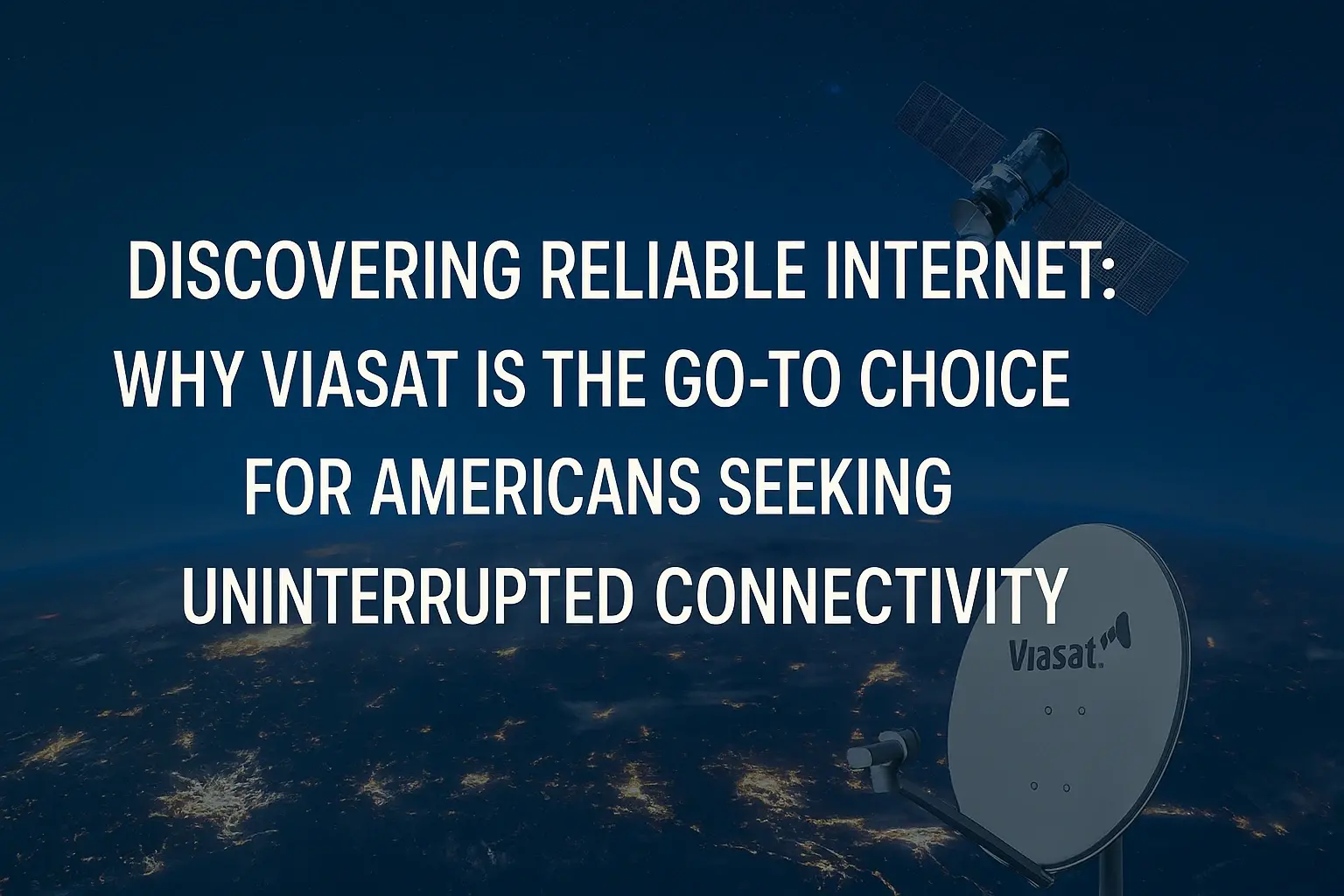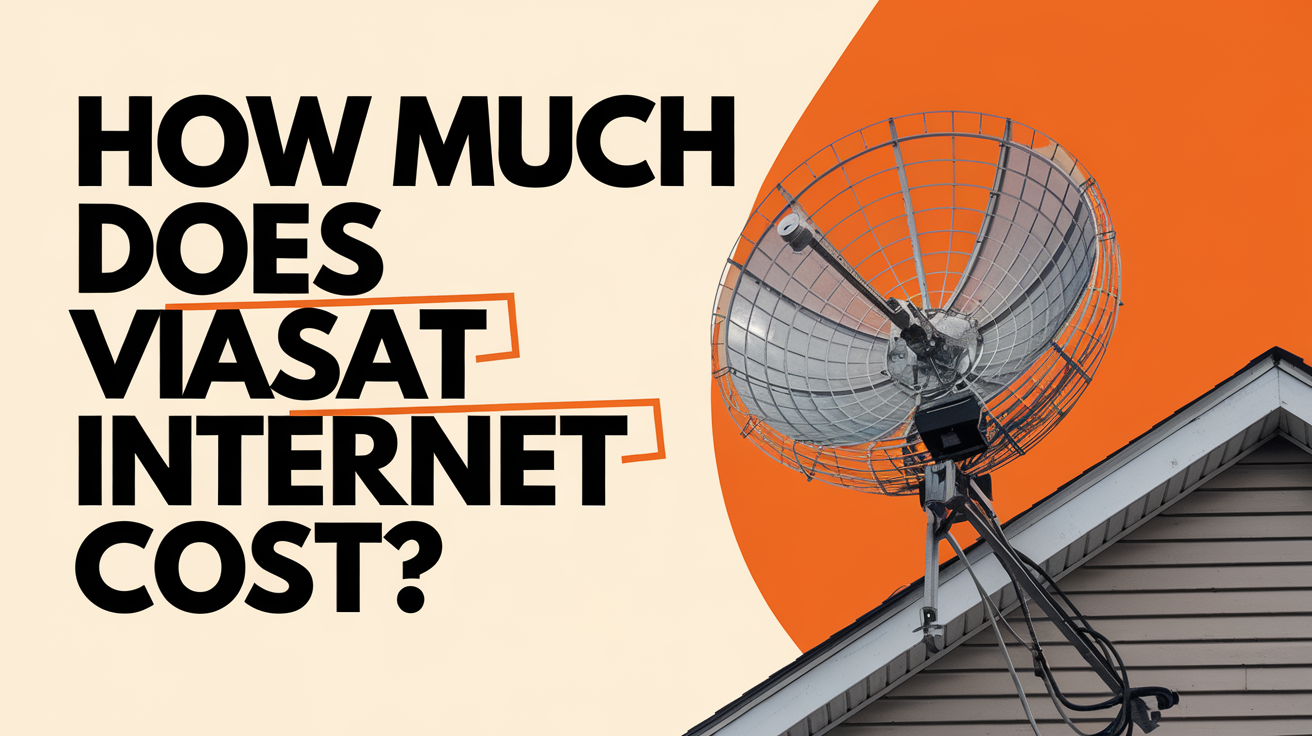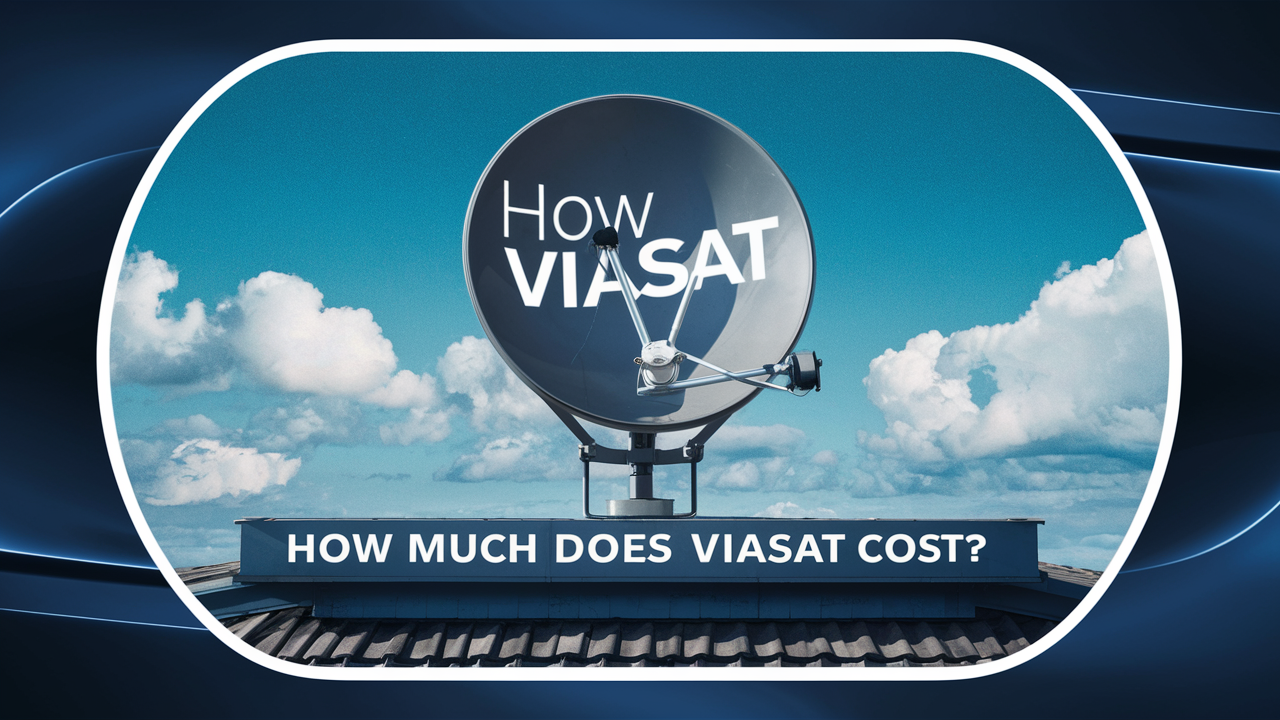-
Posted on: 13 Jul 2024
-
When you ask, “Is Viasat better than satellite internet?” it’s important to clarify what you mean. Viasat is a satellite internet provider, so comparing “Viasat” to “satellite internet” is like comparing a specific brand to the entire category. The more useful question is: How does Viasat compare to other satellite internet providers? In this guide, we’ll explain the difference, review Viasat’s strengths and weaknesses, and help you decide if Viasat is the best satellite internet option for your needs.
Understanding the Terminology
Satellite internet is a type of internet service that uses satellites orbiting the Earth to provide connectivity, especially in rural or remote areas where cable, DSL, or fiber are not available. Viasat is one of the leading companies that provides satellite internet service, alongside competitors like Starlink and HughesNet.
Key Fact: Viasat is a satellite internet provider, not a separate type of internet. The real question is how Viasat compares to other satellite internet services.
How Does Viasat Compare to Other Satellite Internet Providers?
To determine if Viasat is “better” than other satellite internet options, let’s compare it to the two main competitors: Starlink and HughesNet.
Provider Max Download Speed Typical Download Speed Latency Data Cap Contract Price Range Viasat Up to 150 Mbps 34.72 Mbps (avg.) 450–700 ms Unlimited (soft cap: ~850GB) No contract (Unleashed)
24 months (other plans)$99–$129.99/mo. (Unleashed) Starlink Up to 220 Mbps 100–200 Mbps (avg.) 25–60 ms Unlimited (priority data limits) No contract $120–$150/mo. HughesNet Up to 100 Mbps (typically 25–50 Mbps) 15.87 Mbps (avg.) 600–800 ms 100–200 GB (priority data) 2 years $75–$120/mo. Speed and Performance
Viasat offers some of the fastest satellite internet speeds among traditional providers, with maximum download speeds up to 150 Mbps and average speeds around 34.72 Mbps. Starlink, however, is the clear speed leader, with maximum speeds up to 220 Mbps and typical speeds often between 100–200 Mbps. HughesNet lags behind both, with average speeds around 15.87 Mbps.
Data Allowances
Viasat’s main residential plan, Viasat Unleashed, offers unlimited data with a soft cap of about 850 GB per month. If you exceed this, your speeds may be reduced during network congestion, but you won’t be cut off or charged extra. HughesNet, by contrast, has much stricter data limits (100–200 GB) and slows your speeds to a crawl after you exceed your allowance. Starlink offers unlimited data with some plans, but priority data limits may apply depending on your plan and location.
Latency
Latency is the delay between sending a request and receiving a response. Viasat and HughesNet both use geostationary satellites, resulting in high latency (typically 450–700 ms for Viasat, 600–800 ms for HughesNet). Starlink uses low Earth orbit (LEO) satellites, which results in much lower latency (25–60 ms), making it better for real-time activities like online gaming and video calls.
Contracts and Flexibility
Viasat Unleashed offers month-to-month service with no contract, while other Viasat plans may require a 24-month agreement. HughesNet requires a two-year contract, and Starlink offers no-contract service.
Customer Service and Support
Viasat is widely praised for its customer service, often receiving higher ratings than other satellite internet providers. Starlink’s customer support is generally considered adequate, while HughesNet’s support receives mixed reviews.
Is Viasat the Best Satellite Internet Provider?
Whether Viasat is the “best” satellite internet provider depends on your needs and priorities:
- If you want the fastest speeds and lowest latency, Starlink is the clear winner.
- If you want generous data allowances and reliable service, Viasat is a strong choice, especially with its unlimited data and no-contract options.
- If you’re on a tight budget and don’t need much speed or data, HughesNet may be sufficient, but it lags behind Viasat in most categories.
Viasat’s Strengths
- Fast Speeds: Viasat offers some of the fastest speeds among traditional satellite providers, with plans up to 150 Mbps.
- Generous Data Allowances: Viasat Unleashed provides unlimited data with a high soft cap, making it suitable for most households.
- No Contract Option: Viasat Unleashed allows you to pay month-to-month with no long-term commitment.
- Excellent Customer Service: Viasat is known for its responsive and helpful support team.
- Wide Availability: Viasat is available in most rural and remote areas of the continental U.S.
Viasat’s Weaknesses
- High Latency: Like all traditional satellite providers, Viasat has high latency, which can make real-time activities like online gaming and video calls challenging.
- Cost: Viasat is more expensive than many other satellite and land-based options, especially after promotional pricing ends.
- Equipment Fees: There are monthly equipment lease fees or a one-time purchase cost for the satellite dish and modem.
- Weather Sensitivity: Heavy rain, snow, or thick clouds can temporarily disrupt your connection.
Who Should Choose Viasat?
Viasat is an excellent choice for:
- Rural and Remote Households: Where cable, DSL, or fiber internet is not available.
- Heavy Internet Users: Who need more data than HughesNet provides, but don’t want to pay for Starlink.
- Customers Who Value Flexibility: Who want a no-contract, month-to-month option.
Who Should Consider Other Options?
You may want to consider other providers if:
- You Need the Fastest Speeds and Lowest Latency: Starlink is the best choice for online gaming, video calls, and other real-time activities.
- You’re on a Tight Budget: HughesNet may be cheaper, but you’ll get less speed and data.
- You Have Access to Cable or Fiber: These options are generally faster, more reliable, and less expensive than satellite internet.
Viasat vs. Other Satellite Internet Providers: At a Glance
Provider Best For Not Best For Viasat Rural/remote households, heavy internet users, flexible contracts Online gaming, real-time video calls, and tight budgets Starlink Fastest speeds, lowest latency, online gaming Cheapest service, some rural areas with limited coverage HughesNet Budget-conscious users, light internet use Heavy streaming, gaming, and large households Frequently Asked Questions
Is Viasat better than satellite internet?
Viasat is a satellite internet provider, so this question is a bit confusing. Viasat is better than some satellite internet providers (like HughesNet) but not as fast or low-latency as Starlink.
Is Viasat faster than HughesNet?
Yes, Viasat is generally faster than HughesNet, with higher speeds and more generous data allowances.
Is Viasat good for streaming?
Yes, Viasat is suitable for streaming, especially on higher-tier plans with larger data allowances.
Is Viasat good for gaming?
Viasat’s high latency makes it less suitable for online gaming, but it’s fine for downloading games and playing offline.
Is Viasat available everywhere?
Viasat is available in most rural and remote areas of the continental U.S., but not in every location.
Conclusion
Viasat is one of the best satellite internet providers available today, offering fast speeds, generous data allowances, and flexible contract options. While it can’t match the speed and low latency of Starlink, it outperforms HughesNet in most categories and is a great choice for rural and remote households. If you need reliable internet where other options aren’t available, Viasat is a top contender—just remember that satellite internet, including Viasat, is not a direct substitute for cable or fiber.
Summary: Viasat is not “better than satellite internet”—it is a satellite internet provider. Compared to other satellite options, Viasat is faster and more flexible than HughesNet but not as fast or low-latency as Starlink. For rural and remote households, Viasat is a leading choice for reliable, high-speed internet.





